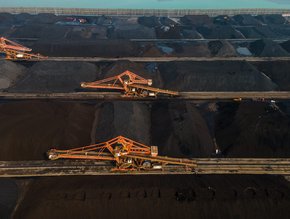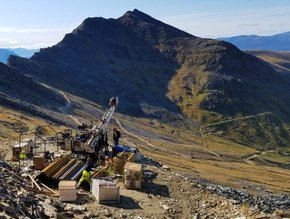Mining sector to invest close to $3 billion into private networks by 2022

The mining sector is expected to invest $2,9 billion into private networks, due to the ever-growing demand for wireless broadband technology utilised by automated technologies such as driverless trucks, trains and drills.
This technology will realise greater cost efficiencies and increases the overall safety of operations, creating, smarter, safer and autonomous mine sites.
The news comes from a new report from ABI Research, a global researcher that looks at the changing technological landscape of multiple industries, including mining and construction.
"Mining companies are the actual pioneers when it comes to autonomous vehicles and private LTE network deployments," says Lian Jye Su, Senior Analyst at ABI Research. "BHP, Fortescue, and Rio Tinto are currently running autonomous haulage and drilling in their iron ore mines. We believe that mining sector will be aggressive in deploying wireless technologies and this deserves the attention of LTE vendors and service providers. Diminishing revenue from consumer market forces LTE vendors and operators to explore business opportunities in other sectors such as mining. Aside from connectivity, they can offer value-added services, such as big data analytics, network security and edge computing."
The mining industry has experienced some bleak times as of late, specifically when it comes to revenue and investment.
Related stories:
-
Unearthed Solutions: Digging through data to Unearth solutions
-
EKA Solutions: Smart software. Smart decisions. Smart commodities.
-
Caterpillar Venture Inc invests in Alight Mining Solutions’ forecasting and analysis technology
Total revenue has been in decline for consecutive years and despite recovery being in sight, mining companies are looking actively to optimize cost and increase the use of technology.
Mining giants, such as BHP Billiton, Rio Tinto, Fortescue, and Codelco, are trailing and deploying autonomous solutions to enhance productivity and safety levels.
Overall, ABI Research estimates that private communication networks in the mining sector will be worth US$3.4 billion during 2017. Capital investment will likely remain low until 2019, before the investment starts to grow again.
A lot of mines are still operating based on manual labour and legacy systems for processes that can be automated, but high labour cost and shrinking margins are causing mining companies to consider more cost-efficient processes.
At the same time, computing and robotics solutions continue to decline in price due to technology advancement. This is where that huge $2.9billion figure comes from, mining companies turning to new technologies, such as remote robotics, IoT, and data analytics.






